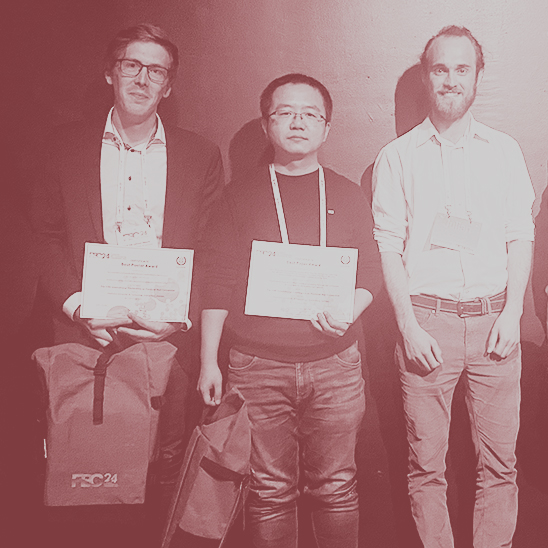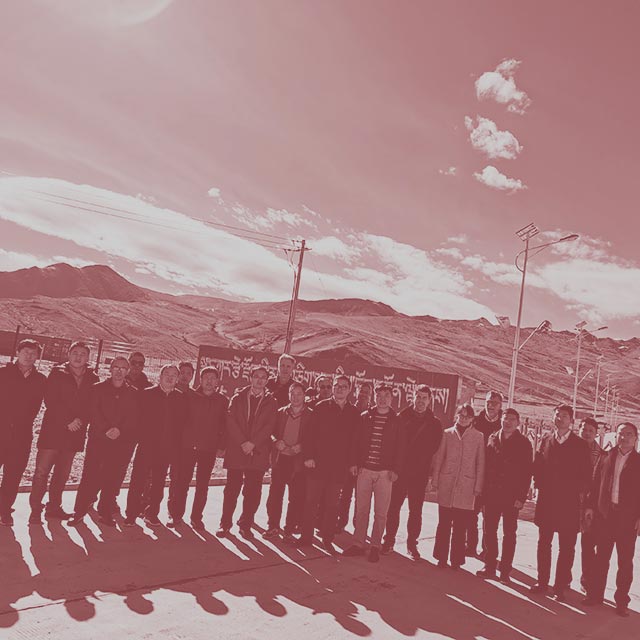Biomass – a problematic alternative
How can we solve the problems phosphorus causes, when biomass is used as an alternative to fossil fuels at power plants?Read more
The SDC Sustainable Energy research area focuses on the energy challenges the world faces. Irrespective of the differences in scale and scope, both China and Denmark rely on a sustainable energy system that provides security of supply, combats climate change and environmental degradation and creates economic growth and welfare.
Both countries have set ambitious targets for a sustainable energy future, though from different points of departure. Changing the energy system will require new innovative solutions, improvement of existing technologies and development of new energy technologies. Research, development and demonstration plays an important role in bringing down cost of energy, making technologies reliable and integrating fluctuating renewable energy effectively and efficiently into the system.

Sustainable Energy systems
The research theme focuses on research that addresses the challenges related to the development, integration, operation, management and optimization of energy systems with increasing penetration of renewable energy resources.
The theme focuses on four interrelated areas:
• Energy systems, markets and policy
• Smart energy systems
• Flexibility options
• Digitalization
Biomass and Waste
The research theme focuses on biomass and waste for heat and power production, industry processes and bio-refinery - deals with characterisation, pre-treatment and transformation of feedstock to heat, power and clean fuels as well as thermal biomass conversion.
Positions of strength
Denmark has grown to become a global leader in the development of new sustainable technologies and solutions and as the first country in the world, Denmark has decided to become entirely independent of fossil fuels by 2050. Danish industry and research communities are well known for advances within renewable energy and energy efficiency. This accumulates to an amassed knowledge that is very attractive and valuable to build on.
China has experienced a staggering industrial and economic development, turning the country into the biggest energy consumer and CO2 emitter in the world. This has made China a key player in combatting climate change and local pollution without jeopardizing the economic growth. China gives high priority to science and technology and has invested heavily in people and research infrastructure related to new energy technologies.
Researching within the framework
The programme has provided a stepping stone for establishing and strengthening research cooperation between the partners.
The main research activities are grouped in:
PhD scholarship
Research schools
Research stays
Executive seminars for researchers and practitioners
PhD scholarships
SDC PhD scholarships remains an important focus for cooperation. This includes joint supervision of PhD students and minimum 6-12 months of research stay at the cooperating institution in China or Denmark. Emphasis is on assuring a good balance between Danish and Chinese PhD scholarships to the mutual benefit of both countries’ research environments. When possible SDC PhD students contribute to the Chemical and Biochemical Master’s programme. Besides that, they contribute greatly to shortening distance between Denmark and China through creating valuable professional and personal relations they can draw on throughout their careers.
Research summer/autumn schools
Since the beginning, research schools have been conducted to the benefit of PhD students and researchers at Danish and Chinese SDC affiliates as well as other academic partners from China and abroad. It provides a forum for exchanging state of the art knowledge in the specific research area and also allows for master students to be included.
Research stays
Chinese and Danish researchers within the sustainable energy theme give priority to shorter or longer research stays at partner research institutes. Such stays give excellent opportunities for doing laboratory work, data collection related to the respective energy system, developing common research projects and writing papers, often together as co-publications.
Practitioner-researcher seminars
The Practitioner-researchers seminars gather key actors of the Chinese and Danish energy sectors to exchange state of the art knowledge on selected themes of relevance to the development of a sustainable, secure and affordable energy sector. The seminars are held at SDC in Beijing.
Meet PhD student Morten Lysdahlgaard Pedersen, whose researche revolves around identifying the ship coatings that, not only prevent biofouling on ships, but also release much fewer harmful biocides into the ocean.
Morten works at The Hempel Foundation Coatings Science and Technology Centre (CoaST) at DTU Chemical and Biochemical Engineering and also collaborates with the Institute of Process Engineering, Chinese Academy of Sciences.
Chen Guangchao
Professor and Executive Dean of College of Materials and Opto-Electronic Technology
University of Chinese Academy of Sciences
E-mail: gcchen@ucas.ac.cn
To discuss proposals for research activities, which can strengthen SDC's activities within the research area or the related Master’s programme, please contact the Principal Coordinator.
Click here to know more about the Master's programme in Chemical and Biochemical Engineering
Please note that the last intake was August 2022.
Clàudia Pastor Morell
Department of Chemical and Biochemical Engineering, Technical University of Denmark
Topic: Next generation of deNOx technology for WtE plants
Starting date: 1 May 2023
Christoffer Rischel Hilbert
Department of Chemical and Biochemical Engineering, Technical University of Denmark
Topic: Novel evaluation methods for enzymes at interfaces
Starting date: 1 December 2022
Andrei Popkov
Department of Chemical and Biochemical Engineering, Technical University of Denmark
Topic: Novel membrane structures for improved performance of immobilized enzymes
Starting date: 1 September 2022
Elisabeth Andreae
Department of Electrical Engineering, Technical University of Denmark
Topic: Optimal design and operation strategies for renewable-electrolysis-based green hydrogen hubs
Starting date: 1 December 2021
Jakob Meister
Department of Chemical and Biochemical Engineering, Technical University of Denmark
Topic: Inorganic particle formation and deposition in thermal conversion of biomass and waste
Starting date: 1 December 2021
Sara Müller
Department of Wind Energy, Technical University of Denmark
Topic: Typhoon wind and turbulence structure, and its impact on wind energy application
Starting date: 1 December 2021
Peter Jul-Rasmussen
Department of Chemical and Biochemical Engineering, Technical University of Denmark
Topic: Artificial intelligence in process system simulation and control
Starting date: 1 November 2021
Nicolai Bo Vanting
Center for Energy Informatics, SDU
Topic: Hybrid AI for energy demand forecasting and operational planning in industrial greenhouse production
Starting date: 1 April 2021
Amalie Vang Høst
Department of Chemical and Biochemical Engineering, Technical University of Denmark
Topic: Cell-free Stability Studies for Bioconversion
Starting date: 1 April 2021


